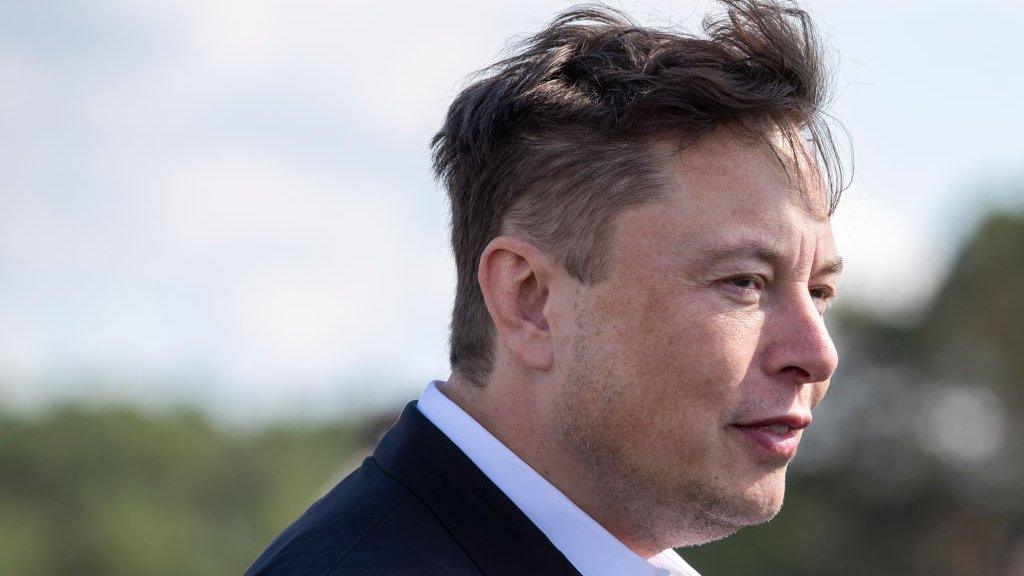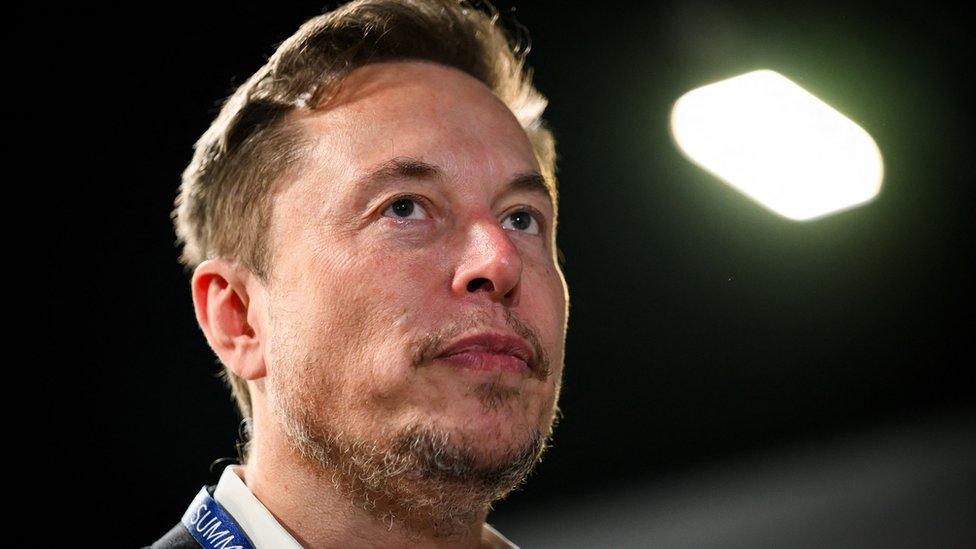Advertisers nervous of Musk’s Twitter takeover
- Published
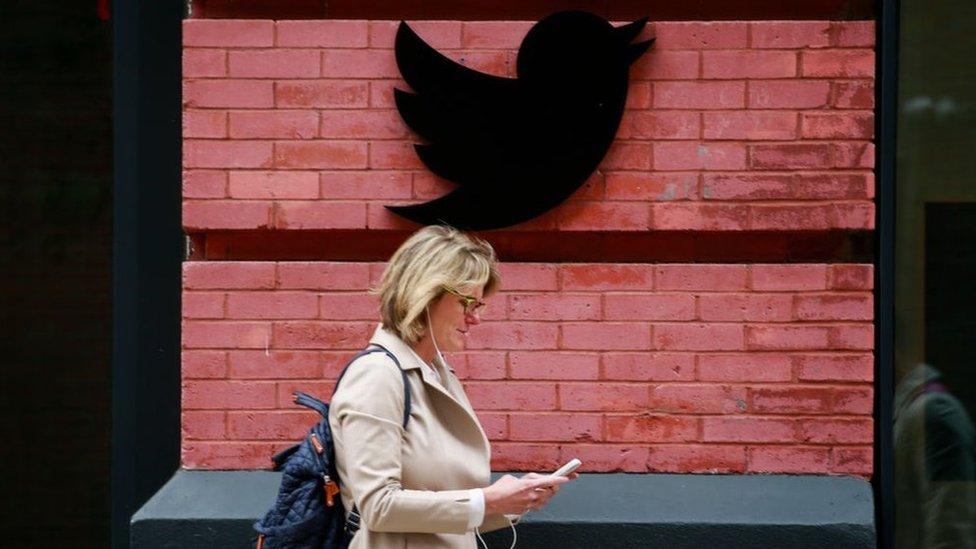
Advertisers will be nervous of using Twitter if Elon Musk prioritises free speech over potential online harms, Sir Martin Sorrell has said.
The advertising veteran told the BBC firms "don't want their brands near controversial content", so they may be anxious using the platform in future.
Elon Musk vowed to relax content restrictions after he struck the $44bn takeover deal.
He has previously described himself as a "free speech absolutist".
The billionaire has been vocal in his criticism of Twitter's policies on moderating content, arguing that it needs to be a genuine forum for free speech.
"Free speech is the bedrock of a functioning democracy, and Twitter is the digital town square where matters vital to the future of humanity are debated," he said on announcing the deal.
However, Sir Martin, who founded the advertising giant WPP, said big consumer brand manufacturers including Unilever had in the past boycotted advertising on Twitter, Facebook and Instagram over concerns about their handling of misinformation and hate speech.
Publicis Media UK's chief executive Sue Frogley also told the BBC that the potential to invite back individuals who had previously published hate speech on the platform was a "big concern".
"We [Publicis Media] have a responsibility to keep the brands we work with safe and align them with partners and channels with a similar ethos, and the highest safety and trust standards," she added.
'Responsible platforms'
A government spokesman said on Tuesday that a change in Twitter's ownership would not alter the company's responsibilities.
"Regardless of ownership, all social media platforms must be responsible. That includes protecting users from harm on their sites," they said.
Twitter currently derives about 90% of its $5bn in annual revenue from advertising.
But Sir Martin, who now runs the digital advertising company S4 Capital, does not think that it will be central to the platform's business model under Musk.
"Twitter is a fairly small player in online advertising. It's a tiny part of the $450bn online advertising spend," Sir Martin said.
"It seems more likely he will pursue a subscription model. How many of Twitter's 200 million users will be prepared to pay? Let's see."
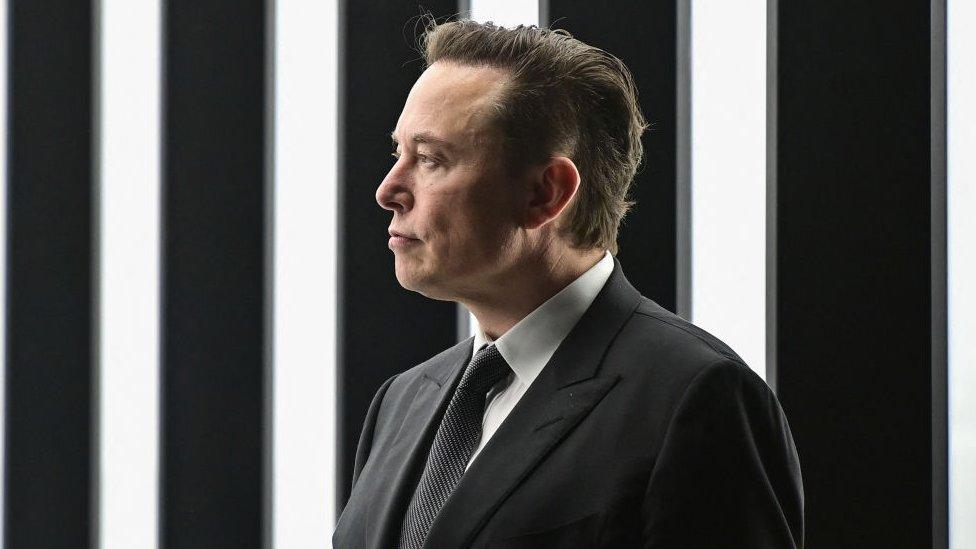
Elon Musk has previously suggested he would consider a subscription-based model for the platform
Analysts at MKM Partners said that such a move could move ad spending towards smaller players such as Pinterest and Snap.
"We believe there will be significant ripple effects across the entire online advertising ecosystem as Twitter goes through this 'go private' process over the next several months," they said.
Ms Frogley said that she would not like to see the removal of advertising on the platform.
"We support a mixed economy of advertising platforms on behalf of our clients, and support environments that deliver against the hardest to reach consumers," she said.
Elon Musk has recently said, however, he is not concerned with Twitter's financial performance.
"This is not a way to make money, my strong intuitive sense is that having a public platform that is maximally trusted and broadly inclusive is extremely important to the future of civilization, I don't care about the economics at all."
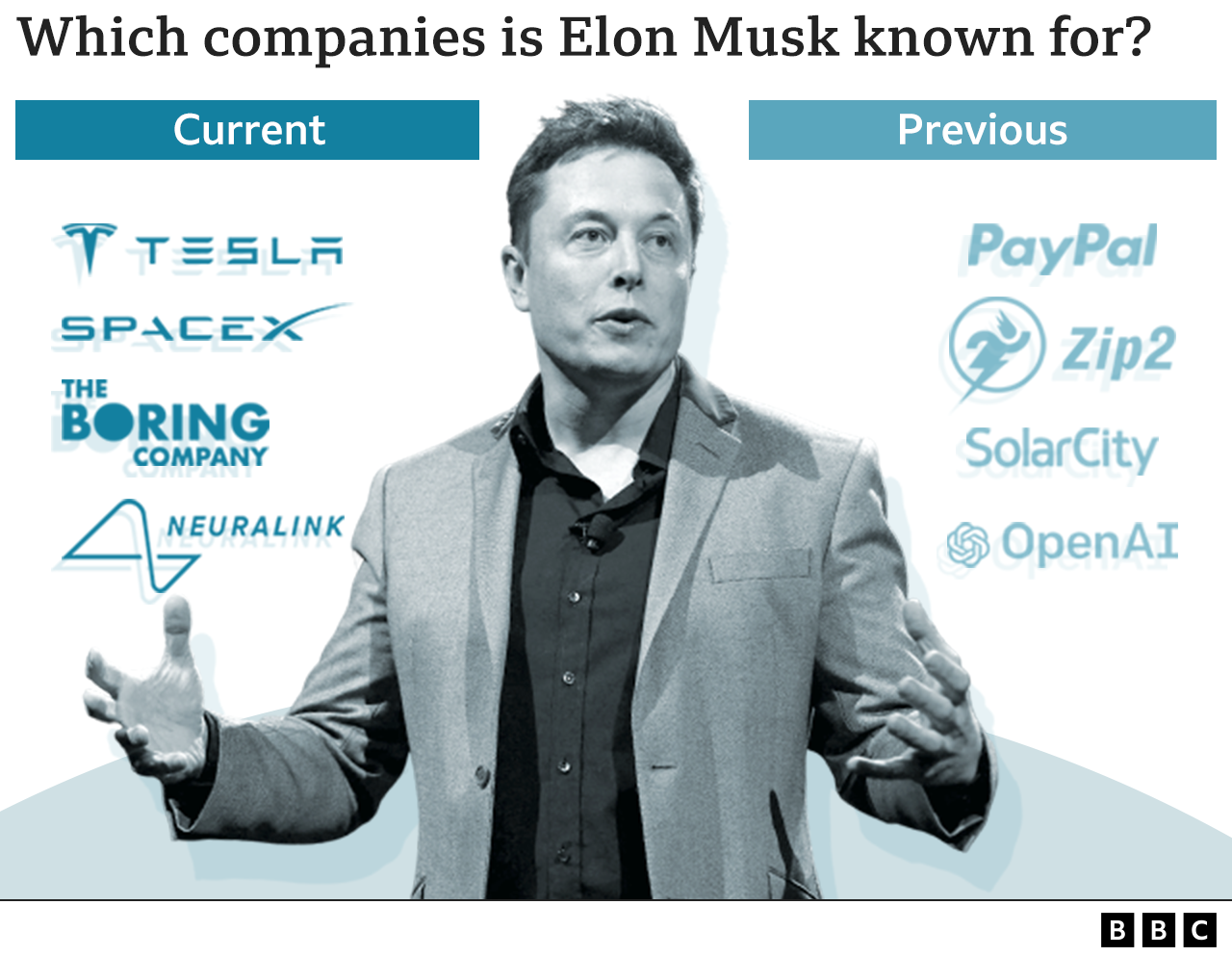
That is a luxury that the world's richest man may enjoy, and Sir Martin told the BBC that Mr Musk's purchase of Twitter was similar to trophy assets bought by other billionaires.
"Jeff Bezos [the founder of Amazon] has the Washington Post, Marc Benioff [the founder of Salesforce] has Time magazine... Mr Musk wants Twitter."
Sir Martin says it won't necessarily be a binary decision between subscription and advertising though.
"Netflix plans to show ads - it depends on the subscription model. Can he make it work? You wouldn't bet against him."
- Published27 April 2022
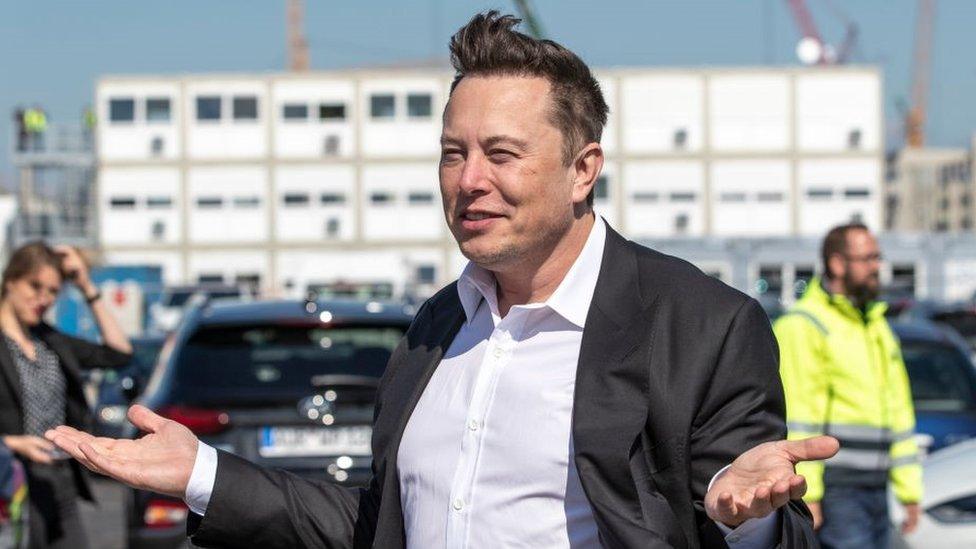
- Published26 April 2022
